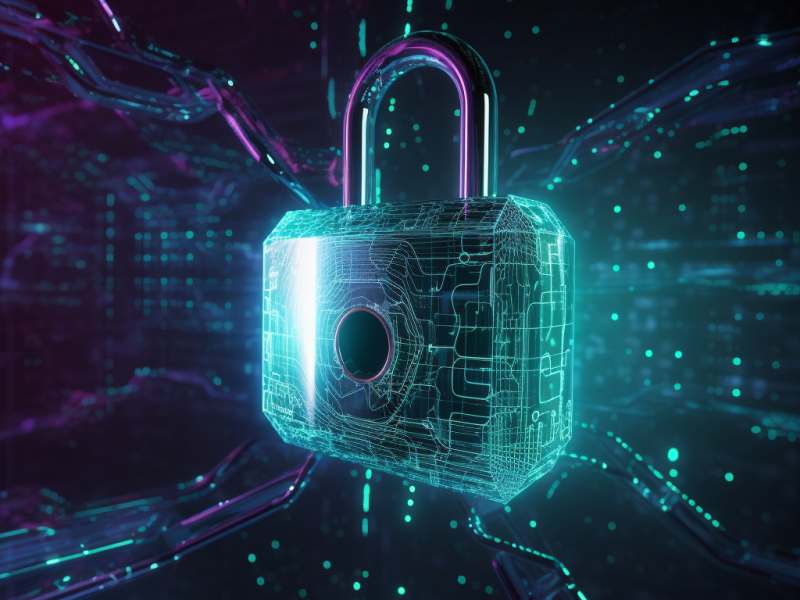In an age where data breaches and cyber threats loom large, blockchain technology emerges as a beacon of security, offering a decentralized, cryptographic solution to safeguard sensitive information. This blog post delves into how blockchain is revolutionizing data security, the importance of cryptography in maintaining data integrity, and the innovative future directions enhancing blockchain’s robustness.
Introduction to Blockchain Technology
Once the underlying technology for cryptocurrencies, blockchain has transcended its initial purpose, demonstrating its prowess as a secure, immutable ledger system. Its ability to distribute data across a vast network of computers ensures enhanced security and transparency, critical for the protection of sensitive data in various sectors. Blockchain technology, initially the backbone of the digital currency Bitcoin, has evolved into a foundational element for a wide array of applications beyond its original financial context. Its defining characteristic is a decentralized ledger that records transactions across multiple computers, ensuring that each entry is both permanent and easily verifiable. This level of security and transparency is achieved through complex cryptographic techniques, making each block in the chain incredibly difficult to alter once formed.
Enhancing Data Security with Blockchain
Blockchain technology is revolutionizing data security by establishing a tamper-proof, encrypted record of transactions across a decentralized network. This not only deters cyber threats by requiring consensus for alterations but also ensures a transparent audit trail for regulatory compliance and consumer trust. With the implementation of smart contracts, blockchain further automates and secures data exchanges, minimizing human error and enhancing privacy. As digital security concerns escalate, blockchain’s robust framework offers a promising solution for protecting sensitive information in our interconnected world. The implementation of blockchain technology marks a significant stride forward in the quest for robust data security. By enabling the creation of verifiable and unalterable transaction records, blockchain stands as a formidable defense against the prevalent threat of data breaches, prioritizing the privacy and security of users’ information.
The Crucial Role of Cryptography
Cryptography is the linchpin of blockchain security, providing the mechanisms to secure data through encryption and digital signatures. Hash functions scramble transaction data into a fixed-size output, creating unique digital fingerprints that are virtually impossible to reverse-engineer. Digital signatures authenticate user identity and consent, ensuring that only authorized participants can initiate transactions. This cryptographic foundation not only protects against unauthorized access but also establishes trust in the system’s integrity, making blockchain a trusted medium for secure digital exchanges. At blockchain’s core lies cryptography, the sophisticated mathematical algorithms that secure data against unauthorized access. The use of hash functions and digital signatures formulates a secure environment, fostering the trust that has become synonymous with blockchain technology.
Decentralization – The Backbone of Data Integrity
Decentralization is a fundamental aspect of blockchain that safeguards data integrity. By distributing data across a vast network of nodes, blockchain eliminates single points of failure and ensures that no single entity can unilaterally alter the ledger. This collective maintenance of the ledger requires consensus among participants, which not only reinforces security but also democratizes control. As a result, blockchain’s decentralized architecture is intrinsically resistant to tampering and corruption, fostering an environment where data remains accurate and untainted. Blockchain’s decentralized nature eliminates centralized points of vulnerability, ensuring the preservation of data integrity. This key feature of blockchain architecture guarantees that transaction histories remain consistent and unmodifiable, providing an immutable record that enhances trust in digital interactions.
Overcoming the Challenges of Blockchain in Security
Blockchain’s potential for securing data is tempered by challenges such as limited scalability, high energy consumption, and regulatory uncertainties. Addressing these issues is critical for widespread adoption. Efforts are underway to develop energy-efficient consensus mechanisms, enhance scalability through layer-two solutions, and achieve cross-chain interoperability, all aimed at integrating blockchain seamlessly into the broader digital security landscape. Blockchain’s journey is not devoid of obstacles, with scalability, energy efficiency, and regulatory compliance presenting significant challenges. Addressing these issues is paramount to harnessing blockchain’s full potential in fortifying data security infrastructures.
Innovations on the Horizon for Blockchain Security
The future of blockchain security is rich with innovation, with research focused on enhancing its efficiency and robustness. Innovations like sharding, which breaks the blockchain into smaller, more manageable pieces, and layer-two solutions that process transactions off the main chain, aim to improve scalability and transaction speed. Quantum-resistant cryptography is also being developed to preempt the threat of quantum computing, ensuring long-term resilience. These advancements signal blockchain’s evolving nature and its potential to become an even more integral part of data security strategies. The horizon is replete with innovations poised to enhance blockchain’s capabilities further. Developments such as sharding, layer-two protocols, and quantum-resistant cryptography are at the forefront, seeking to improve the scalability and security of blockchain systems, ensuring their long-term viability.
Blockchain stands at the forefront of a data security revolution, offering a secure, transparent, and decentralized ledger that is increasingly difficult to compromise. Although it faces challenges in scalability, energy consumption, and regulatory acceptance, ongoing innovations promise to refine and adapt the technology to meet the growing demands of a digitalized world. With developments like sharding, layer-two solutions, and quantum-resistant cryptography on the horizon, blockchain security is poised to become more efficient and impenetrable, ensuring it remains a trusted guardian of data integrity.
Looking to implement tamper-proof record-keeping systems, or exploring decentralized solutions for data privacy, we’re here to provide you with cutting-edge blockchain solutions tailored to your needs. Reach us out today.

